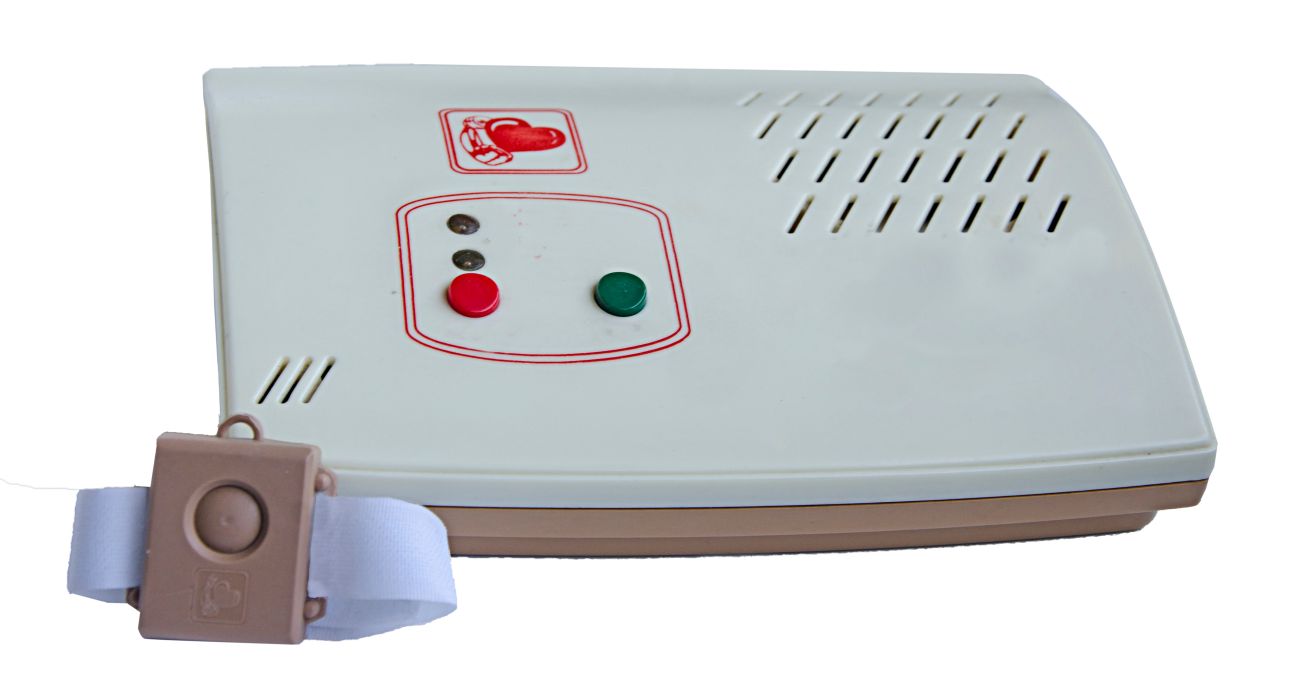If you or your loved one is concerned about falling at home, a medical alert system can provide much-needed peace of mind. Medical alert systems summon help at the touch of a button. Start an online search to find the best options on the market.
If you experience a fall or other medical emergency and you can’t get to a phone, a medical alert system provides a reliable way to get help fast. Since these devices are potentially lifesaving, it makes sense to wonder if Medicare covers them.
What Are Medical Alert Systems?
Medical alert systems are also known as personal emergency response systems. When you sign up for an at-home medical alert service, you’ll receive equipment that you set up in your home. Most medical alert systems include a:
- Base Station: The base station uses some type of telephone connectivity — either a landline or cellular service — to provide contact with the medical alert provider’s call center.
- Wearable Help Button: Medical alert help buttons can be worn as a necklace-style pendant or on the wrist like a wristwatch. If you need help, you press the button, which then contacts the systems’ call center through the base station. Trained staff will assess your situation and call emergency responders if needed. They can also contact your family members or other designated contact persons.
Many companies offer medical alert systems and services, along with add-on services. Some options include medication reminders, daily check-in calls, and linked smoke and carbon monoxide detectors. Additionally, you can get “on the go” systems that work away from home.
If you or your loved one is prone to falls, it’s worth considering upgrading to a help-button pendant that includes fall-detection technology. It will automatically detect a fall and contact the care center immediately.
Are Medical Alert Systems Covered by Medicare?
Medicare Part A and B do not cover the cost of medical alert systems.
However, if you have Medicare Part C — also known as Medicare Advantage — you might receive some coverage for medical alert devices. It depends on the details of your Advantage plan. If you have Medicare Advantage, you should contact your insurer to find out if they cover these systems as part of their benefits.
It’s possible to get some coverage through a Medicare Supplement plan, also known as Medigap. Again, contact your provider to confirm coverage specifics.
Best Medical Alert Systems Covered by Medicare
Life Alert
Life Alert is perhaps the most well-known medical alert system provider. The company claims to save a life from a catastrophe every 11 minutes and allow seniors to live in their homes for an average of five years more than seniors without Life Alert.
Life Alert offers personal help buttons designed to withstand use in the shower.
In addition to standard emergency response services, they provide intruder-response services. When you press your help button, a Life Alert representative can listen for sounds of an intruder in your home through the base stations’ sensitive microphone and act accordingly. Life Alert uses its own in-house, U.S.-based call centers to provide 24/7 assistance.
If you have coverage for medical alert systems through Medicare Advantage or Medigap, you could receive partial or full coverage of Life Alert’s monthly fee.
Bay Alarm Medical
Bay Alarm Medical is one of the most affordable medical alert systems available. The Bay Alarm company has been in business for over 70 years, Due to its long history, it’s a top-rated medical alert provider.
In addition to its standard in-home medical alert, the company offers cell-phone-based help buttons with GPS tracking and a medical alert system intended for use in the car.
Bay Alarm Medical’s 24/7 call centers are U.S.-based. They provide service in as many as 170 languages, including Spanish, Chinese, Farsi, Vietnamese and Russian.
Bay Alarm Medical offers options to personalize your help button pendant with attractive Bella charms. Plus, you can add your spouse to your coverage at no extra cost.
If your Medicare Advantage or Medigap provides coverage for medical alert systems, it could pay for part or all of Bay Alarm Medical’s monthly fee.
LifeFone
LifeFone is another medical alert system company that’s been in business for decades. In fact, they’ve been providing personal emergency response services since 1976.
One thing that sets LifeFone apart from other companies is the impressive range from the base station to the help buttons. Your help button will work up to 1,300 feet away from a base station. Some other providers’ equipment only has 600-feet to 800-feet ranges. That makes LifeFone a top choice for people with large homes or who spend a lot of time in their backyard.
LifeFone has all the features you’d expect from a top medical alert company, such as U.S.-based, 24/7 call centers. The company offers a range of hardware options that let you personalize your coverage to meet your needs.
Medicare Advantage or Medigap could cover all or part of LifeFone’s monthly fee, which starts at $24.95.
Moreover, LifeFone strives to go above and beyond by offering no activation fees and a price-lock guarantee, so your subscription cost will never go up. You’ll get a lifetime warranty on the hardware. Plus, you can cancel your LifeFone service at any time without penalties.
Search Online
Medical alert systems provide peace of mind and allow seniors to stay in their homes longer. The best way to find out if your Medicare plan covers a system you’d like to buy is to contact your plan’s provider. Then, search online to learn even more about the solutions available to you.
